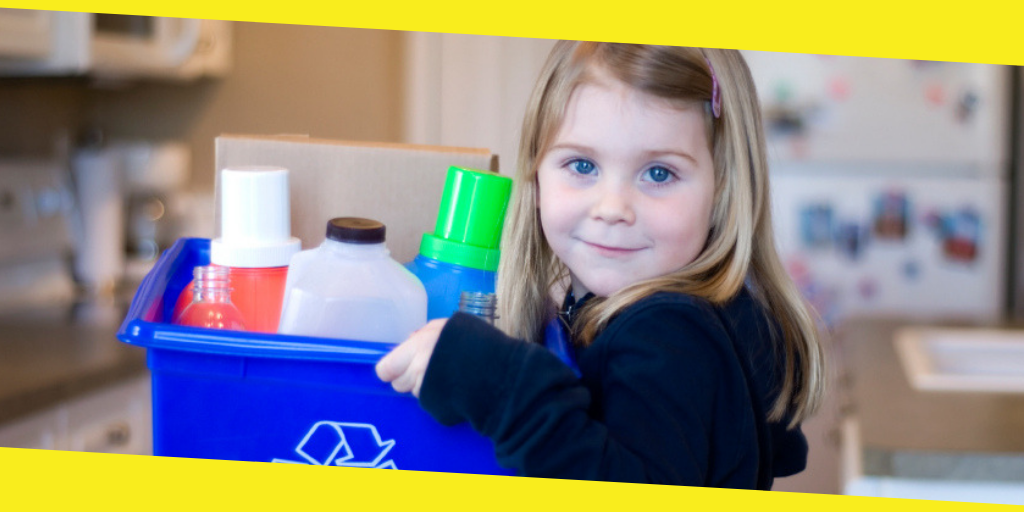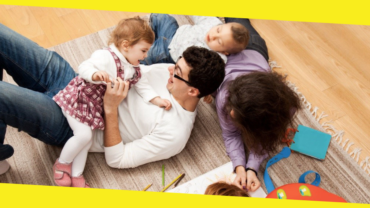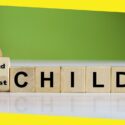How to Encourage Your Children to Recycle
This post was last updated on September 6th, 2019

We all aim to teach our children to do the right thing, and encourage good habits from a young age, so why wouldn’t recycling be one to think about? Household waste is a huge contributor to environmental damage, and with landfill sites across the nation reaching full capacity, there’s never been such a crucial time to change our habits. If we can show our youngsters the benefit of recycling, then we are nurturing a very important habit for them to keep as they grow up.
Budget Skip Hire company, Skip Hire, are proud of their impressive recycling rates from their waste collection services, and they’ve come up with a few great tips for teaching kids how to be greener.
Contents
ToggleEducate them
It’s all good to just tell your children to recycle, but to encourage them it’s essential to explain why they’re doing in the first place. For example, why not take a walk in your local park and explain how the trees are used to make paper, so to protect the trees we need to recycle our paper instead of putting it into the ordinary bin?
While recycling is one of the most important issues in modern society, it doesn’t have to be difficult explaining it to your kids. Just by using simple associations, you can communicate the benefits of recycling with your children effectively, in a way that they can understand. There are plenty of online videos, books and other resources which are targeted specifically at youngsters, so put some time aside and talk them through it before you get started.
Labelling your bins
This recycle tip is simple but is effective in the long run. If you add labels to your binds, then you’re showing your kids that there are different bins for different waste. Have a bit of fun with it by letting them design the labels or have them assign certain colours to the recycling bin. This will encourage your kids to distinguish between their rubbish, choosing what can and cannot be recycled based from the label recognition. Once they’ve designed the labels, quiz them about what each material is that they’re throwing away and have them decide which bin it should go in.
Take them to the local recycling facility
Enhance your children’s understanding on the process of recycling, by showing them the big industrial bins, that are usually located at supermarkets, or take them to an actual recycling centre. The benefits of visiting an actual recycling facility can really bring the whole process to life, as your kids can apply their own curiosity and ask questions about the machinery, learning how the items that they recycle begin their journey through the facility. Most facilities will welcome visitors, sharing industry knowledge and explaining more about the benefits of recycling waste.
Changing waste into creative projects
Part of recycling is reusing or giving products a new purpose when you’re finished with them. Why not gather up items such as milk bottles, yoghurt pots, and cardboard boxes and challenge your children to get creative? Make a DIY toy or even a bird feeder, and it could really help to engrain the value of abandoning throwaway culture in favour of a more environmentally friendly lifestyle. These recycling projects give your children a first–hand experience of understanding that not all rubbish is only fit for the waste bin. Another great idea is composting, as it puts recycling and reusing into practice while also getting your kids outdoors for fresh air. Use banana and orange peel and explain to your children that these materials can become the soil to help other plants grow.
Star chart
Acknowledge your child’s recycling efforts by putting a reward system in place. For example, introduce a star chart and add to it each time your kids choose to recycle an item. By recognising their efforts, you are encouraging them to recycle more, which is the aim. Add a treat into the equation so that for when they have got a certain number of stars, they get a reward. Place the star chart in your kitchen, so that they can see how they’re doing and meet their recycling goals!
People of all ages should be recycling household products where possible. Parents should lead by example for their youngsters, establishing good recycling habits for greener homes.
Visit GlobalMomsMagazine to build up more better parenting lifestyle.
Recommended For You
12 Ways You Can Spend More Quality Time With Your Children
Most Inside
Most Inside offers high-quality recommendations and valuable updates to enhance all aspects of your life, providing premium guidance and enriching experiences.




